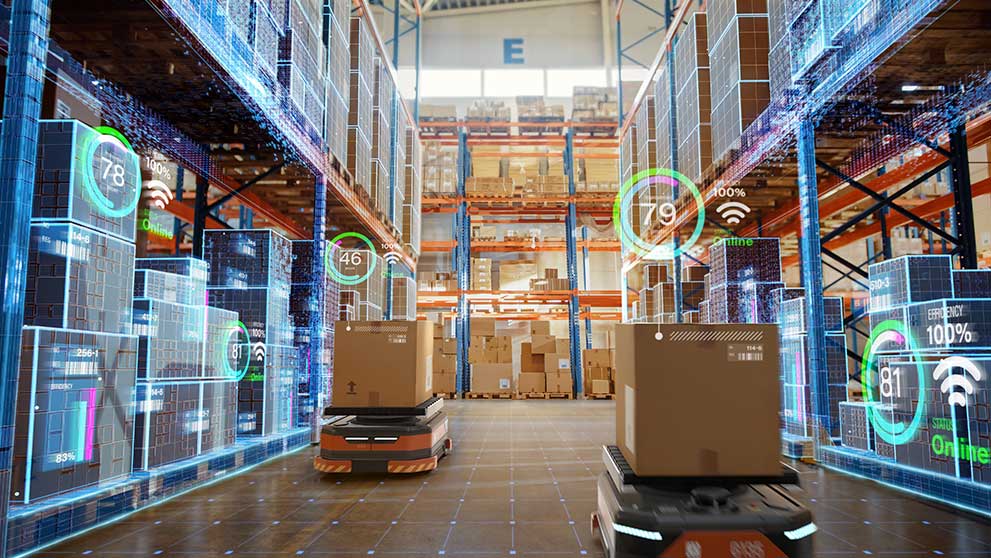In the heart of Africa, where vibrant markets pulse with energy, the rules of business are changing fast. For South African e-commerce and mini-importation companies, the path to success lies in harnessing the power of digital integration to build supply chains that are robust, agile, and ready for whatever the future may bring.
The Digital Revolution: A Necessity, Not a Choice
The COVID-19 pandemic sent shockwaves through global supply chains, exposing weaknesses and forcing businesses to rethink their strategies. In this new era, digital transformation is no longer a technological nicety – it's a strategic imperative. By embracing digital solutions, companies can gain the visibility, agility, and resilience they need to thrive in an ever-changing world. Like Qlik, the best supply chain analytics tools can continuously funnel real-time information such as inventory flow or shipping performance from suppliers, partners, and customers. This level of insight enables data-driven decision-making that drives growth and profitability.

Leading the Charge: Key Strategies for Digital Integration
Harness the Power of Advanced Analytics and AI: Imagine having the ability to forecast demand with uncanny accuracy, anticipate disruptions before they occur, and make data-driven decisions that drive growth. This is the promise of advanced analytics and AI, technologies that can unlock new levels of performance in the digital supply chain. According to Forbes, AI offers the promise of unprecedented efficiency, predictive insights, and cost savings across the supply chain. From demand forecasting to proactive risk management, the benefits of advanced analytics are clear. Advanced supply chain analytics help in identifying potential risks and vulnerabilities in the supply chain, from geopolitical risks to supplier financial stability. This allows companies to proactively manage risks and develop contingency plans, reducing the impact of disruptions.
Embrace the IoT Revolution: With IoT sensors and devices, businesses can track goods in real-time, monitoring location, temperature, condition, and more. This level of visibility enables proactive interventions and a level of control that was previously unimaginable. Intellectsoft notes that the use of IoT in supply chain management reduces human involvement by relieving workers from tedious routine activities. The extensive use of IoT devices allows for real-time tracking and predictive analytics, revolutionizing inventory management and transforming the way supply chains operate. IoT in the supply chain has a significant impact on inventory management by revolutionizing the way inventory levels are monitored and managed.
Build Trust with Blockchain: In industries where provenance matters, blockchain offers a transparent and secure way to track transactions and product origins. By enhancing trust and accountability, businesses can build stronger relationships with customers and partners. Harvard Business Review notes that blockchain can greatly improve supply chains by enabling faster and more cost-efficient delivery of products, enhancing products' traceability, improving transparency, and increasing customer trust. Amazon Web Services notes that blockchain can be used as a tool to track waste, emissions, and environmental impact at each stage of the supply chain. Improved supply chain visibility can lead to more sustainable practices and better decision-making.
Prioritize Cybersecurity: As supply chains become more digital, the risk of cyber threats grows. By implementing robust security protocols and conducting regular audits, businesses can safeguard their systems and protect their data. Terranova Security notes that foreign cyber criminals attack supply chains to interrupt or stop the flow of utilities, goods, and services, to steal intelligence information, and create backdoors for future attacks. A cyber supply chain attack usually means a cyberattack on one business that affects operations at other entities connected to the business. The importance of cybersecurity in protecting the supply chain cannot be overstated.
Implement Cloud-Based Solutions: Cloud computing provides a scalable and flexible infrastructure for managing supply chain operations. It enables seamless data sharing across different locations and devices, supporting better collaboration and efficiency. Cloud-based platforms can also integrate various supply chain functions, from procurement to delivery, in a unified system. Acropolium affirm the benefits of cloud computing in transportation and supply chain include real-time data sharing and analysis, process automation, cost reduction, and increased efficiency. Also, in the supply chain, the cloud centralizes an 'online' space for data to exist, and offers multiple entities access to that data, decreasing costs and increasing operational efficiency.

Taking A Cue from a Global Player
A prime example of successful digital integration is the globally renowned retail giant, Amazon, which uses advanced robotics, AI-driven logistics, and real-time data analytics to optimize its supply chain. Amazon has implemented IoT in its supply chain operations to improve efficiency and customer experience. By connecting physical objects and using sensor-based technologies, Amazon can track the position, quality, and timely delivery of products. South African companies can draw lessons from such global leaders, adapting digital solutions that fit their local contexts to enhance their competitiveness and resilience.
Partnering with DHL for Enhanced Reach
To further bolster supply chain resilience and reach more customers, you can partner with DHL, a global leader in logistics. DHL offers advanced tracking systems, efficient logistics solutions, and extensive global reach, ensuring that businesses can deliver products quickly and reliably to customers both locally and internationally. This partnership can significantly enhance operational efficiency and customer satisfaction, driving business growth in a competitive market.
By opening a business account with DHL, companies can access a range of services tailored to meet their unique needs.
The path to a resilient and robust supply chain for your business lies in embracing digital integration. By integrating advanced technologies, enhancing cybersecurity, and partnering with industry leaders like DHL, you can navigate the complexities of modern supply chains, ensuring sustainability and growth in an increasingly interconnected world.






































